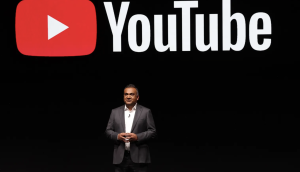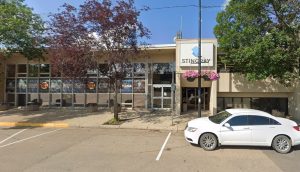A national study recently commissioned by Cossette Media finds that back-to-schoolers most important prep is the things they do, rather than the things they buy – valuing the time and money spent on activities over acquisitions. ‘It’s a state of mind which we feel should influence messaging before actual media planning,’ says Luc-Andre Cormier, VP of Impact Research, Cossette’s research arm, which conducted the study on behalf of the media agency. ‘The insight is certainly a conversation starter to bring media and creative closer together in a joint creative process.’
Cormier also advises marketers to dispel the old ‘poor student’ notion, and to not underestimate the buying power of this demo, as the number of students entering first and second year is on the rise. With more of them living at home, parents covering their basic living essentials, and income sources like government grants and loans, as well as 63% of those surveyed saying they intend to keep working during the school year, Cormier says today’s student demo has more money than previous gens and that the group represents ‘a significant, and potentially untapped market.’ An interesting aspect of the findings is that students are less likely to buy goods, like computers and cell phones, and more likely to spend their money on actual activities like travel, bar-hopping and going out to restaurants.
Unsurprisingly perhaps, the study also found that social media is an important part of their lives, with 93% of the students surveyed having a Facebook account. Replacing other email, chatting and instant messaging utilities, Facebook is seen as a central hub for the demo that provides a means to coordinate school projects and that this was sometimes recommended by the teaching faculty. According to the study, the social network also provides insights into how students manage their lives, both personal and professional. ‘Students have different worlds that cohabitate in Facebook (on average four), which does not seem to bother them in the least,’ notes Cormier. ‘This may very well have a very different perspective on how this generation perceives the divide between their professional and personal lives.’
Cormier tells MiC that the level to which post-secondary students have integrated Facebook in so many aspects of their lives is one of the survey’s most significant from a media planning perspective. ‘For example, when asked what they will do with their friends before school starts, 39% of English Canadian students claim they will ‘catch up on Facebook’ (39%)’ says Cormier. ‘That is practically as significant as ‘talk on the phone’ (41%) and significantly more important even than ‘send e-mail’ (24%).’
When it comes to spending, the study found that the most popular purchases are those that comfort, inspire confidence and come with social status -heightening bragging rights. While students buy and use technology, they do so to connect with others, rather than for the technology itself: More than a third of the students (37%) intended to purchase an internet connection, over a cable/satellite subscription (21%).
Cormier points out that survey findings found that those who move before school starts are nearly twice as likely to purchase an ISP account (66%) than cable or satellite TV (36%). It also found that 23% of students already own a SMART phone and 57% of those who don’t live with their parents are planning a cell-only household.
The study, full results of which can be found here, draws from a combination of fact-based and qualitative observations spanning some 1,000 under-30 Canadian students heading back to school this fall. Data collection took place late May to early June using online panels and web recruitment on youth oriented sites, with Montreal and Toronto focus group findings folded into the national online survey.























